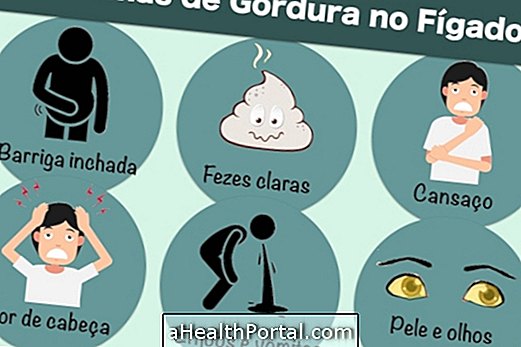Borderline syndrome, also known as borderline personality disorder, requires attention to symptoms such as mood swings and impulsivity, and whenever a psychological disorder is suspected, you should consult a psychologist or psychiatrist to diagnose the problem and initiate treatment.
Usually, the first symptoms of Borderline personality appear during adolescence and can be confused with common rebellious moments of the young, but in most cases they decrease of intensity in the adult life. To know the causes of this disorder read: Understand borderline syndrome.

Main symptoms
Some symptoms that may indicate Borderline Syndrome may be:
- Exaggerated negative feelings such as fear, shame, panic and anger exaggerated to the actual situation;
- Unstable interpretations about others, evaluating as good person in an instant and quickly judging as a bad person;
- Fear of being abandoned by close people, especially friends and family, and making threats in case of being abandoned, as an attempt to commit suicide;
- Difficulty in controlling emotions, being able to cry easily or have moments of enormous euphoria;
- Dependency behaviors, such as gambling, running out of money, overconsumption of food or drugs;
- Instability in the type of relationships he maintains with friends or family, ranging from great intimacy and detachment;
- Low self-esteem considering itself inferior to others;
- Impulsive and dangerous behaviors, such as unprotected intimate contact, drug abuse, and disrespect for social rules or laws, for example;
- Unstable employment ;
- Insecurity in oneself and in others ;
- Feeling of chronic emptiness and feelings of constant rejection;
- Difficulty accepting criticism, overvaluing all situations.
- Relationships always very intense, but confused and disorganized.
Symptoms of Borderline Syndrome may arise due to routine events such as going on vacation or altering plans, causing intense feelings of revulsion. However, they are more common in individuals who have experienced strong emotional experiences as a child, such as facing illness, death or situations of sexual abuse and neglect, for example.
If you have any of these symptoms, take the test:
- 1
- 2
- 3
- 4
- 5
- 6
- 7
- 8
- 9
- 10
- 11
- 12
Learn about your risk of developing borderline
Start the test


- I totally agree
- I agree
- Neither agree nor disagree
- I disagree
- Strongly Disagree

- I totally agree
- I agree
- Neither agree nor disagree
- I disagree
- Strongly Disagree

- I totally agree
- I agree
- Neither agree nor disagree
- I disagree
- Strongly Disagree

- I totally agree
- I agree
- Neither agree nor disagree
- I disagree
- Strongly Disagree

- I totally agree
- I agree
- Neither agree nor disagree
- I disagree
- Strongly Disagree

- I totally agree
- I agree
- Neither agree nor disagree
- I disagree
- Strongly Disagree

- I totally agree
- I agree
- Neither agree nor disagree
- I disagree
- Strongly Disagree

- I totally agree
- I agree
- Neither agree nor disagree
- I disagree
- Strongly Disagree

- I totally agree
- I agree
- Neither agree nor disagree
- I disagree
- Strongly Disagree

- I totally agree
- I agree
- Neither agree nor disagree
- I disagree
- Strongly Disagree

- I totally agree
- I agree
- Neither agree nor disagree
- I disagree
- Strongly Disagree

- I totally agree
- I agree
- Neither agree nor disagree
- I disagree
- Strongly Disagree
Consequences of Borderline Syndrome
The main consequences of this syndrome lead to relationships with the partner and very unstable family members that lead to the loss of ties, increasing the feeling of loneliness. Also, they may have difficulty maintaining employment and developing financial difficulties, because they may develop addictions.
In addition, in more severe cases, the constant suffering can lead to the suicide attempt.
How to treat
Boderline Syndrome has no cure, but can be controlled through treatment that is done by combining medications prescribed by the psychiatrist, such as mood stabilizers, anti-depressants, tranquilizers and antipsychotics to help maintain well-being.
In addition, it is essential to maintain a psychological therapy, guided by the psychologist to help the patient decrease symptoms and learn to control emotions and impulsivity. The most used therapies are dialectical behavioral therapy, especially for those patients with suicidal behavior, cognitive-behavioral therapy, family therapy and individual psychotherapy.
Due to the complexity of Borderline Syndrome, psychological therapies can last several months or even years.
Learn more about mood swings in:
- See what the consequences are and how to get rid of stress
- Learn to recognize the symptoms of nervous breakdown
























